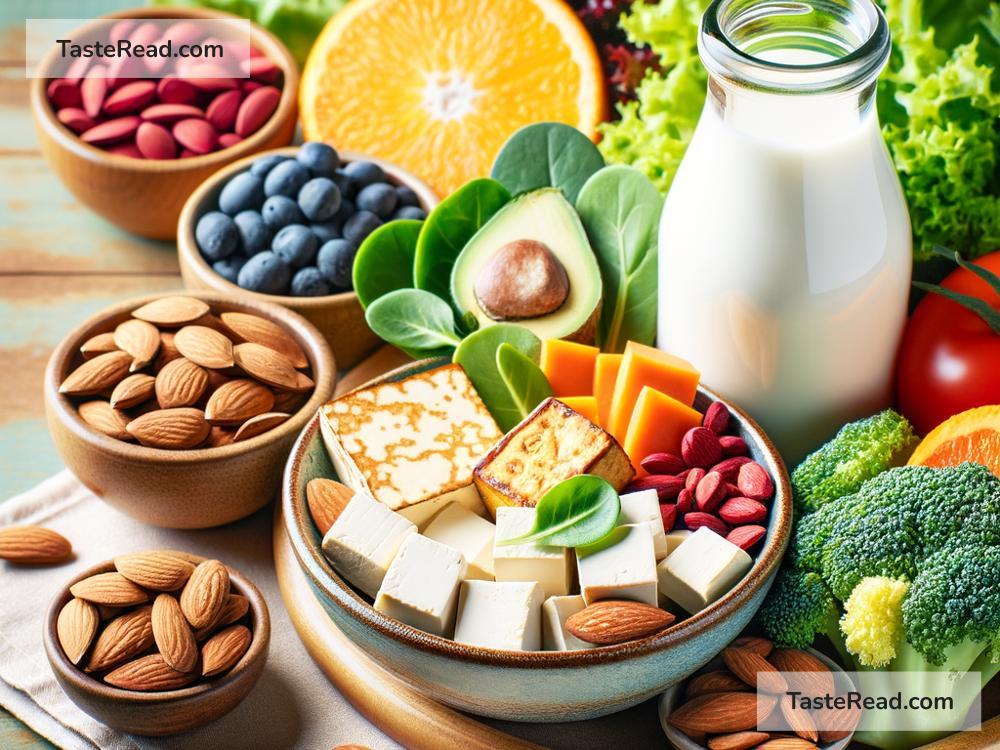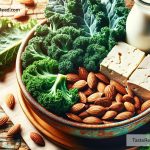Veganism and Bone Health: Myths vs. Facts
In recent years, veganism has surged in popularity. Adopting a vegan lifestyle means cutting out all animal products, not just from what we eat but from what we wear and use daily. While the benefits of a vegan diet often include lower risks of certain diseases, improved heart health, and a lesser environmental impact, there’s been a growing concern around one specific health aspect: bone health. Today, we’ll delve into the common myths and facts surrounding veganism and bone health, aiming to separate fact from fiction in plain English.
Myth 1: Vegans Always Suffer from Weak Bones
The belief that vegans have weak bones stems from the notion that dairy products, which are rich in calcium, are the sole sources of bone-strengthening nutrients. However, this is a myth. While it’s true that calcium plays a vital role in bone health, it’s not exclusive to dairy products. Leafy green vegetables, fortified plant milks, almonds, and tofu are excellent vegan sources of calcium. Furthermore, vitamin D, which helps our body absorb calcium, can be obtained from the sun and from fortified foods.
The key to strong bones on a vegan diet is not just about calcium and vitamin D, though. Magnesium, vitamin K, and protein also play crucial roles, and all of these can be found in a well-planned vegan diet. The bottom line is, vegans can maintain healthy bones by ensuring they consume a variety of these micronutrients.
Myth 2: Vegan Diets Cause Bone Diseases Like Osteoporosis
Osteoporosis, a condition where bones become weak and brittle, is often mentioned in conversations about veganism and bone health. The fact is, osteoporosis is influenced by several factors including genetics, physical activity, and overall nutrition — not just diet type. A comprehensive review of studies found no conclusive evidence that a vegan diet alone causes osteoporosis. In fact, maintaining a balanced vegan diet, alongside regular exercise, can contribute to strong, healthy bones and potentially lower the risk of developing osteoporosis. It’s all about getting the right nutrients and staying active.
Myth 3: Vegans Don’t Get Enough Protein for Bone Health
Protein is crucial for almost every bodily function, including bone health. A common myth is that vegan diets don’t provide enough protein. However, plenty of plant-based foods are rich in protein, such as lentils, chickpeas, quinoa, tofu, and seitan. By incorporating a variety of these foods into meals, vegans can easily meet their protein needs. Moreover, recent studies suggest that plant-based sources of protein are as beneficial as animal-derived protein when it comes to maintaining bone health.
Fact 1: Balanced Vegan Diets Can Support Healthy Bones
A balanced vegan diet can, without doubt, support bone health. It’s important for those following a vegan lifestyle to plan their meals carefully to ensure they’re getting a wide range of nutrients necessary for strong bones. This includes calcium, vitamin D, protein, magnesium, and vitamin K. Regular check-ups with healthcare professionals to monitor levels of vitamins and minerals can also help in maintaining optimal bone health.
Fact 2: Lifestyle Choices Impact Bone Health
While diet plays a significant role in bone health, it’s not the only factor. Lifestyle choices like exercise, specifically weight-bearing and resistance exercises, can significantly influence bone density and strength, regardless of diet type. Moreover, habits like smoking and excessive alcohol consumption can detrimentally affect bone health. Maintaining a healthy lifestyle overall is key to strong bones.
Conclusion
The myths surrounding veganism and bone health often overshadow the facts. A well-planned vegan diet, rich in essential nutrients and accompanied by a healthy lifestyle, can support strong and healthy bones. Like with any diet, the focus should be on variety, balance, and ensuring adequate intake of all necessary nutrients. With the growing availability of fortified foods and supplements, managing a vegan diet for optimal bone health is more accessible than ever. Remember, consultation with healthcare professionals can provide personalized advice and reassurance for those embarking on or currently living a vegan lifestyle, aiming to keep their bones healthy for years to come.


